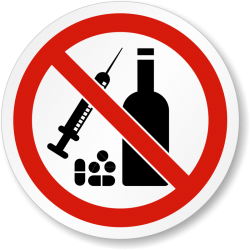What Sober Living Rules Are Common in Most Sober Homes
Detox and residential treatment programs provide addicts with the knowledge and tools needed for living a drug-free existence. These programs operate according to a highly structured treatment model that works to prevent those in recovery from backsliding. While effective, people who complete treatment must be able to apply what they’ve learned within everyday life without any treatment program supports to fall back on.
Sober living programs combine the best of both worlds in terms of allowing residents to carry out the affairs of normal everyday living while providing them with a recovery-focused living environment. As sober living programs work to replicate what life will be like once a person goes out on his or her own, these programs require residents to follow a strict set of rules during their stay in the program. While different programs do follow their own sets of guidelines, most sober living home programs incorporate a standard set of rules for residents to follow.
Sober Living Programs

The number 1 rule in most sober homes is that residents abstain from drugs and alcohol.
Someone who’s spent time in a drug treatment program can look back and see how the chaotic effects of addiction wreaked havoc in his or her life. Addiction, in and of itself breeds a lifestyle of dysfunction that only works to support ongoing drug use.
The sober living program treatment model is designed to create a semi-independent living environment that enables recovering addicts to develop essential daily living coping skills within a supportive, recovery-focused environment. Likewise, this treatment model incorporates a rules-based structure that helps to prepare a person for “real world” living.
Many of the rules within a sober living program correspond with the types of rules an everyday household follows. In effect, this rule structure picks up where detox and residential programs leave off in terms of creating structure within a semi-independent living environment.
Sober Living Rules
According to the U. S. National Library of Medicine, the rules structure found in sober living home programs was first developed in 1986 as a standard guideline for helping recovering addicts maintain abstinence within a semi-independent living environment. These guidelines are based on the Clean and Sober Transitional Living model.
Rules incorporate within most sober living home programs include the following –
- Obtaining a sponsor
- Attendance at weekly house meetings
- Alcohol and drug use is prohibited
- No alcohol or drugs allowed on the property
- Sleeping at the home for a minimum number of nights out of the week
- Attending 12-Step support group meetings on a regular basis
- Making known one’s whereabouts when away from the home
- Curfew restrictions
- Taking on household chores
- Paying rent
- Paying for room and board
Drug Testing
Maintaining a clean and sober household remains a top priority for sober living programs. For this reason, all programs require residents to submit to drug testing on a periodic basis.
Drug testing may occur on a scheduled or random basis depending on how a particular program is run. Most homes reserve the right to drug test on the spot in instances where they suspect a resident has used drugs. While some homes may automatically evict residents who violate the ‘no drug’ policy, others may be more lenient and allow for one relapse occurrence before evicting a person from the home.
 What are the Rules in a Sober House? -
The rules of a sober house help to provide structure for the residents so that they're able to work toward their goals.
What are the Rules in a Sober House? -
The rules of a sober house help to provide structure for the residents so that they're able to work toward their goals.  Are Support Groups Required in Sober Living? -
The rules that sober houses operate on vary from house to house. Some houses do require support group meeting attendance, and some even hold meetings in the home. Others don't require it at all.
Are Support Groups Required in Sober Living? -
The rules that sober houses operate on vary from house to house. Some houses do require support group meeting attendance, and some even hold meetings in the home. Others don't require it at all.  Sober House Rules: Rules to Sober Living -
The rules set by sober living facilities are usually pretty basic and meant to assist with the recovery process.
Sober House Rules: Rules to Sober Living -
The rules set by sober living facilities are usually pretty basic and meant to assist with the recovery process.  Sober Living Rules You Can Expect to Have -
While in sober housing you will likely have to follow some rules. The rules differ from house to house, but they are put in place to help you maintain your commitment to sobriety.
Sober Living Rules You Can Expect to Have -
While in sober housing you will likely have to follow some rules. The rules differ from house to house, but they are put in place to help you maintain your commitment to sobriety.  Why Do I Have to Obey the Sober House Rules? -
When living at a sober home you will have to follow rules set by the owners, and may have a curfew, chore requirements and other things to do.
Why Do I Have to Obey the Sober House Rules? -
When living at a sober home you will have to follow rules set by the owners, and may have a curfew, chore requirements and other things to do.